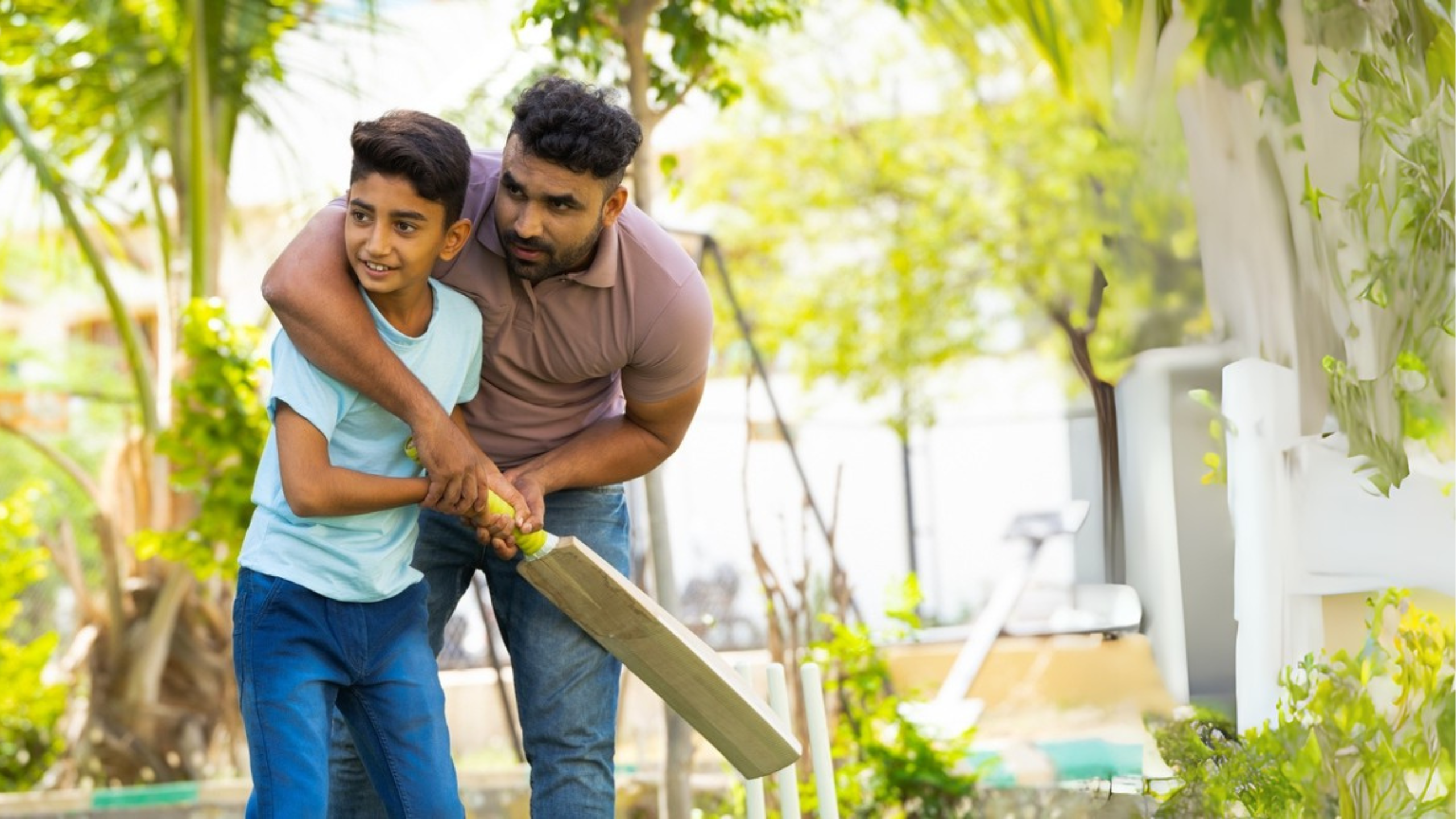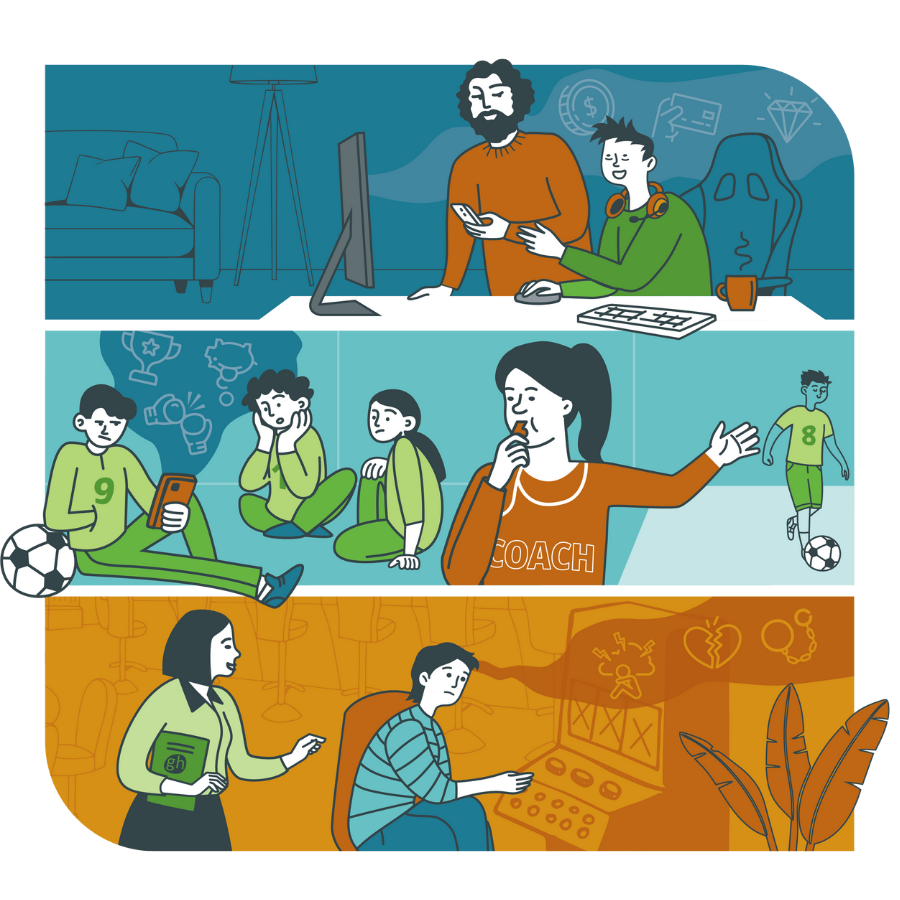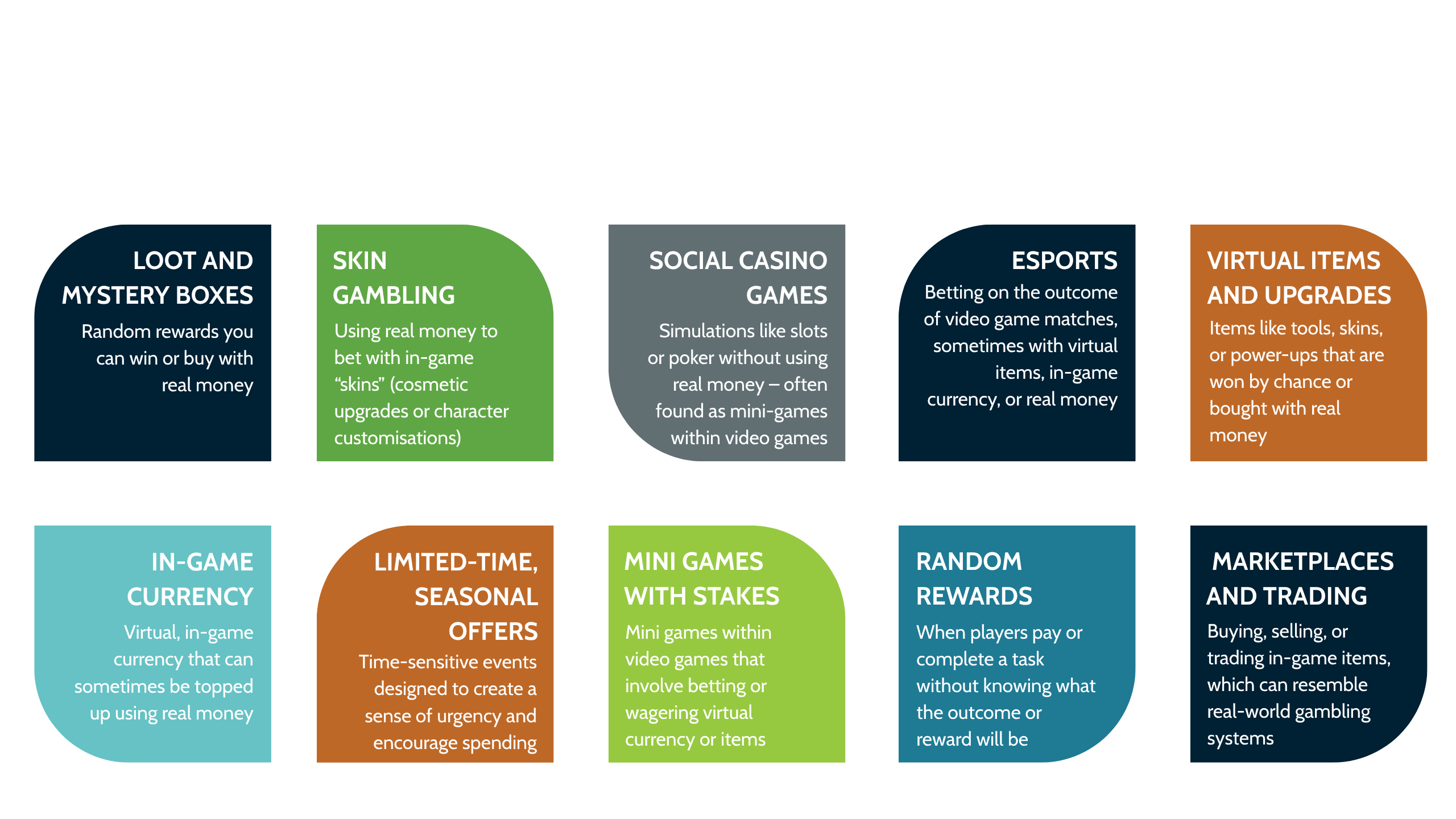Gambling Harm Awareness Week (GHAW) runs from 21–27 July 2025. It’s a time to shine a light on the impact gambling can have, share safer ways to gamble, and remind people that support is available if gambling starts to become a problem.
This year’s GHAW theme is ‘Protecting young people from gambling harm – it starts with you’. It’s a reminder to parents, carers, teachers, and loved ones that we all play a role in helping young people understand the risks and stay safe.
It's no secret that gambling is popular in Australia. Young people are often exposed to it through TV, social media, video games, apps, and even people they know. When gambling is everywhere, it can start to feel like an easy way to win, or just harmless fun - even though the risks are serious and real.
Protecting young people starts with all of us.
If you’re concerned about a young person in your life, there are ways to support them. Try having open, honest chats about gambling and the risks involved. These conversations can help them make informed choices and develop a healthy perspective on gambling.

Gambling Harm Awareness Week (GHAW) runs from 21–27 July 2025. It’s a time to shine a light on the impact gambling can have, share safer ways to gamble, and remind people that support is available if gambling starts to become a problem.
This year’s GHAW theme is ‘Protecting young people from gambling harm – it starts with you’. It’s a reminder to parents, carers, teachers, and loved ones that we all play a role in helping young people understand the risks and stay safe.
It's no secret that gambling is popular in Australia. Young people are often exposed to it through TV, social media, video games, apps, and even people they know. When gambling is everywhere, it can start to feel like an easy way to win, or just harmless fun - even though the risks are serious and real.
Protecting young people starts with all of us.
If you’re concerned about a young person in your life, there are ways to support them. Try having open, honest chats about gambling and the risks involved. These conversations can help them make informed choices and develop a healthy perspective on gambling.
Young people may come across gambling in their everyday lives, especially considering its normalisation in Aussie culture, video games, and social media. Talking about it might feel tricky, but these chats can make a real difference.
Here are some simple tips to help you start the conversation:
- Choose the right moment
Bring it up when it feels natural, like if a gambling ad comes on TV or when a big sports match (like the State of Origin) is coming up. - Check in with them
Try to understand how they're coming across gambling or gambling-like features in video games, social media, sports, or from influencers and celebrities. It’s a good way to know more about what they’re seeing and how they feel about it. - Explain how it works
Let them know that gambling is based on chance and that the odds of winning are usually low. It’s not a reliable way to make money or win rewards. - Talk about the risks
Gently share that gambling can sometimes have serious long-term consequences, like money problems, stress, or impacts on school, work, or friendships.

That doesn’t mean video games are bad. By understanding what the teen or child is playing, and by having these conversations, you can help them stay safe while enjoying their favourite games.
Here are some tips to help young people enjoy gaming safely:
- Help them set a budget for in-game purchases
- Set daily or weekly screen time limits together
- Mute or skip game content that pressures them to spend
- Remind them that it’s just a game – the rewards aren’t real
- Encourage regular breaks, especially if they’re feeling stressed or frustrated
- Talk about the importance of not chasing losses, especially if they're feeling upset
- Support a healthy balance between gaming, school, sleep, social time, and other activities
- Have open conversations about how some games are designed to keep them spending money or time.

Gambling Help offers free support to people and families who are experiencing gambling harm.
If you're concerned about a child - or your own child - we can guide you and offer support.









